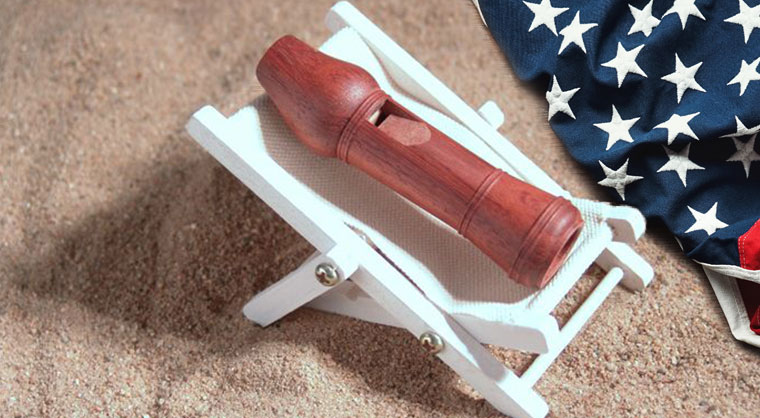19/08/2021

Helping Hands for Sick Recorders
It is very true that recorders change over time. But very few players treat their instruments to regular care.
As a result, the gradual deterioration of the instrument is not noticed until it is too late. This can cause the wood to become brittle or the decisive tone to no longer respond cleanly while playing.
It would help to look at your recorder critically on a regular basis to consider whether or not everything looks as it should.
Perform a visual inspection of your instrument.
- Have deposits formed in the tone holes?
- Is the windway clean?
- Does the inner bore appear dry?
- Do the tenon joints feel "good" when the instrument is twisted together and apart? Or do they jam, crack and wobble?
- Do the keys make annoying noises?
- Are there any visible cracks?
After the visual inspection comes the musical and acoustic test.
- Do all the notes respond reliably?
- Has the tuning changed?
- Is the recorder still as resilient as before?
- Is the tonal center still large enough? (Can I play loudly or softly without losing the "beautiful" tone)?
If you feel "that was better before", then it is time to decide the following:
- Can I do the work myself? What do I need to do it?
- Do I have the instrument repaired by a professional?
A dry cork can and should of course be greased immediately with the cork grease that is included in the accessories of every good recorder.
Deposits in tone holes can also be cleaned by yourself with a soft cleaning stick with absorbent cotton on the ends. Sometimes a few drops of rubbing alcohol on the absorbent cotton help to loosen the deposits.
For all other work, the safe handiwork of a professional is advisable.
At RecorderForge.com it is our goal to make your instruments as fit as possible.
At RecorderForge.com it is our goal to make your instruments as fit as possible.

